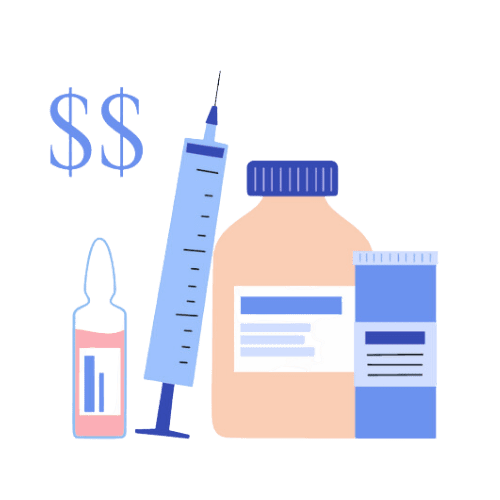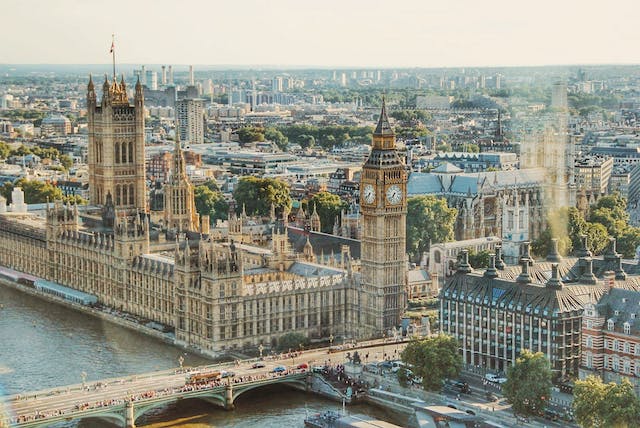Egg Freezing & IVF in Canada
At Zora Health, you are our top priority. We’re here to guide you through every step of your egg freezing or IVF journey — helping you understand your options, and make confident, informed decisions about your care and costs.
Egg freezing, also known as mature oocyte cryopreservation, is a method used to save women’s ability to get pregnant in the future.
In vitro fertilisation (IVF) is a procedure used to help with fertility, prevent genetic problems and assist with the conception of a child

Spread out the cost of treatment over 12, 24, and 36 months to avoid large upfront payments and reduce financial burden.
LEARN MORE
Accessible & affordable fertility care in Canada
Egg Freezing and IVF in Canada
Egg/sperm freezing and IVF clinics in Canada are all LGBTQ+-friendly! Anyone can freeze their eggs; however, patients will need to undergo health screenings. International patients must have international health insurance. Some clinics may not accept non-Canadian citizens. Bear in mind that commercial egg donation and surrogacy are strictly prohibited so only arrange third-party reproduction options with your chosen clinic. To significantly increase the chances of having a successful pregnancy, fertility clinics offer personalised patient care in their facilities and acquire modern fertility technology in their laboratories. Some clinics also have home insemination programs for international patients who would like to do their insemination treatments at home.
All About Canada for Medical Tourists
Canada is the world's leading country in medical tourism, according to the latest Medical Tourism Index. In the history of medicine, one of its milestones includes Frederick Banting's and Charles Best's insulin discovery in the 1920s. It has reached the top spot in the Medical Tourism Index due to its emphasis on preventive medicine and holistic wellness. Aside from its high telemedicine standards for both local and international patients, it has become a world leader in stem cell therapies and least-invasive cardiac operations.
Top facilities include the Canadian affiliate of the Mayo Clinic and the General Hospitals in Vancouver and Toronto. Other high-quality facilities are highly concentrated in Toronto, Montreal, and Vancouver. World-class healthcare standards are upheld with the help of the Healthcare Accreditation Canada (HAC) as well as provincial and federal health departments. Compared to medical expenses in the U.S., the cost of medical services is reduced by about 30 to 60%. Medical tourists are given a Temporary Resident Visa, which is good for half a year.
A trip to Canada is like experiencing the best of two countries since it is a unique blend of French and British cultures. Go to Old Quebec or Vieux-Québec for a taste of French historical influences. Take a sip of traditional British tea at the legendary Empress Hotel in Victoria's Inner Harbour.
Have a magical geological trip to the Gros Morne National Park in Newfoundland. You will find a wide assortment of wildlife such as whales, moose, and black bears there. To see cowboys in action, watch the Calgary Stampede rodeo. Don't miss going to Churchill, the "Polar Bear Capital of the World" on the Hudson Bay Shore in Manitoba. Ride on a boat in Horseshoe Falls, which is a part of the great Niagara Falls. Lastly, get yourself on a canoe and take hundreds of pictures of the blue and green Moraine Lake in Banff National Park.
For your safety, always check the Provincial and Territorial wildfire information for updates about wildfires that are common in Canada. Always hike with professional supervision from tour operators in the forests to protect yourself from bear attacks. Use snow tires when driving during the winter. Be careful of avalanches when downhill or cross-country skiing in Alberta and British Columbia.
Take the bus whenever possible as your main means of public transportation since it's the cheapest and most convenient. Payment channels include buying bus transit passes in convenience stores and major bus stations or paying the bus driver directly in cash. Train tickets can be bought in person from the rail station or online at VIA Rail Canada. Take the ferry boats to access the coastal parts of British Columbia and the Atlantic Region.
There is a growing social demand for fertility treatment in Canada. The number of women who had egg freezing in 2022 has doubled, compared to the previous year. Data from the Canadian Fertility and Andrology Society estimates that there are one in six Canadians experiencing infertility due to certain factors. Even with public funding for treatment, Canadians face the stress of the treatment cycle, long waiting periods, and limited options. According to Carolynn Dubé of Fertility Matters Canada, the country's 35 fertility clinics (as of April 2023) are not enough to cater to the growing demands. The majority of those who seek fertility preservation and treatment are couples who have delayed having children until the women reach an advanced age.
English and French are the two most widely spoken languages. Due to migration, Mandarin and Punjabi have also emerged as the next most widely spoken languages.
Benefits of Doing Fertility Treatments in Canada
Fertility clinics in Canada include assisted reproductive technology procedures that typically start with a physical exam, ultrasound, blood tests, vaginal culture, pap smear, semen analysis, and saline infusion sonohysterogram or hysterosalpingo-contrast-sonography. Common services offered are IUI, ovulation induction, IVF plus ICSI or not, pre-implantation genetic testing, egg retrieval, sperm, and embryo donation, embryo transfer, surrogacy, and adoption.
Public medical care for assisted reproduction services like IUI and IVF in Canada has different programs depending on location. IUI and other IVF treatments are not publicly funded in Alberta, Nunavut, Saskatchewan, The Yukon, British Columbia, and Northwest Territories. Ontario offers financial assistance for one IVF cycle for a woman up to 42 years of age and unlimited IUI procedures for any age. Manitoba provides a 40% tax credit for IUI and IVF. Those in New Brunswick can claim up to half of the cost of IVF or IUI. A $5000 subsidy per cycle, with a maximum of three cycles, is available for Newfoundland and Labrador residents. Residents of Nova Scotia receive a refundable tax credit of 40% for IUI and IVF costs. Prince Edward Island reimburses from $5000 to $10000 per year for IVF and IUI.
Private Fertility Clinics in Canada
ReproMed
The services at ReproMed in Toronto include fertility testing and consultation, IVF, surrogacy, egg donation, egg freezing, and frozen embryo transfer. The LGBTQ+-friendly clinic provides government-funded treatment through the Ontario Fertility Program. Qualified residents of Ontario must have a valid health card to be eligible for this program. ReproMed assists patients in navigating third-party reproduction options, including surrogacy, egg donation, and sperm donation, as well as their home insemination program using donor semen. The program includes instructions, donor sperm catalogues, an ovulation protector kit with six testing strips, and a home insemination kit.
CReATe Fertility Centre
Services for local and international patients at CReATe Fertility Centre include fertility testing, IVF, PGT/PGD, surrogacy, egg/sperm donation, and the egg freezing process. The LGBTQ+-friendly clinic offers personalised care where one specialist will oversee the entire course of treatment. Having an experienced staff consisting of faculty from the University of Toronto and state-of-the-art technology, the clinic has the largest as well as a shared risk guaranteed egg donor and surrogacy program in Canada.
Grace Fertility Centre
Services at the LGBTQ+-friendly Grace Fertility Centre include fertility testing, IVF, reciprocal IVF (for female couples), shared IVF (for male couples), and egg freezing. The clinic has over a decade of experience and state-of-the-art technology. Its high success rates include a clinical pregnancy rate of 55% for women under 35 per elective embryo transfer (compared to the 49% national average).
Grace Fertility Centre has acquired two modern fertility technology services. The first is the Embryo Analysis of Culture Environment, also called EMBRACE. In this preimplantation genetic screening service, the clinic gets a DNA sample from the embryo culture medium liquid and then tests it for normal and abnormal chromosomes. The second innovation is the use of barcodes for the accurate identification of patients' frozen eggs, gametes, and embryos in the embryology lab.
Costs to Consider
On average, one IVF treatment cycle in Canada costs CAD 10,000 – 15,000 (USD 7,350 – 11,030) or up to CAD 20,000 (USD 14,700) including the cost of drugs, tests, and consultations. Some insurance plans partially cover the costs.
In four Canadian provinces, funding is available for fertility treatments. Here are the funding details for specific locations:
In Ontario, the government funds one cycle for women up to the age of 42, excluding medication costs (approximately CAD 5,000 or USD 3,680). Single people and same-sex couples are eligible for this special assistance fund.Manitoba offers an IVF treatment tax credit covering 40% of costs.A fund covering up to 50% of IVF costs (up to CAD 5,000 or USD 3,680) is available for New Brunswick residents diagnosed with a medical history of fertility problems and in possession of a valid Medicare card.In Quebec, residents and citizens can claim medical expenses for one IVF cycle, medications, embryo freezing, and one year of storage for women up to 41.
Egg freezing costs CAD 7,000 – 15, 000 (USD 5,150 – 11,030) per cycle (including medication) plus CAD 300 – 950 (USD 220 – 700) per year for storage). Financing options to electively freeze eggs are not covered by government health plans.
Other Considerations Before Starting Your Fertility Treatment in Canada
IVF
IVF in Canada is available to single people and couples who are married or have a common-law partner (including those who are LGBTQ+).
Egg Freezing
Female patients can freeze their eggs. However, patients will need to undergo health screenings. International patients must have international health insurance. Some clinics may not accept non-Canadian citizens.The number of women freezing their eggs has more than doubled between 2013 and 2016.
Donors
Non-commercial egg donation is legal. Commercial egg donation is a serious crime.
Surrogacy
Altruistic surrogacy is legal when the surrogate mother is over 21. Commercial surrogacy and advertising for/as a surrogate mother is prohibited (although surrogates may be reimbursed for expenses).Why Choose Canada for Your Fertility Treatment
You're definitely in good hands when you choose Canada for your IVF treatment. As the world's leading country in medical tourism, they undoubtedly have world-class healthcare standards upheld with the help of the Healthcare Accreditation Canada as well as provincial and federal health departments. Fertility clinics in Canada typically start with diagnostic procedures and commence with various services that include IUI, ovulation induction, IVF treatment plus ICSI or not, pre-implantation genetic testing, donation of eggs, sperm, and embryos, embryo transfers, surrogacy, and adoption.
Post-treatment, treat yourself to a cup of British tea at the legendary Empress Hotel in Victoria's Inner Harbour and wander in the French neighbourhood of Vieux-Québec.
Ready to do your egg freezing & IVF journey in Canada?
Meet Our Network of
Experienced Fertility Specialists

You deserve the very best.
That's why we’re here to support you — whenever you need it.
1
Personalised Care Navigation
Expert guidance to choose the right care provider and navigate the process, costs, & regulations.
2
Seamless, All-in-One Care
Consultations, diagnostics, telehealth, education, & treatment referrals are available on one platform.
3
Trusted, Reliable Resources
Gain clarity & confidence with verified information. Save time, reduce stress, & eliminate endless research.
Global reach, unparalleled service

"Clear pricing - clarity & support from start to end."
"I love Zora Health for their simple, transparent pricing. It was a relief not to worry about unexpected fees or hidden costs. They made the entire process stress-free and easy to understand, which allowed my husband and I to focus on what mattered most - my family's future."
Syarifah, 27 & Indra, 29

"I couldn't believe that I can choose my own doctor and enjoy extra benefits for the same price."
"I had a preferred doctor overseas that my girl friends recommended. He is part of Zora’s clinic network, but I was interested in Zora’s support and perks. After speaking to Zora, they assured me I wouldn’t pay extra. Zora managed the whole process - from personalised guidance to answering my queries about legalities."
Nina, 32, Single

"The financing options lifted a huge weight off my shoulders."
"Zora’s instalment plans were a true lifesaver. I was so grateful for their flexible and affordable options. I have been thinking about preserving my eggs as a form of “insurance” but didn’t want to pay a big lump sum upfront as I am saving for a house. The instalment plan helps me manage my finances better.”
Elaine, 32

"I never felt alone in my fertility journey."
"After failing previously, we were very anxious and were not sure what to expect. They guided us through the process and cared for us every step of the way. My treatment at the clinic was long, and sometimes it was emotionally draining, but having a fertility coach made us feel better and more prepared. As busy professionals, we appreciate the convenience of scheduling appointments through Zora. I have recommended Zora to all our friends."










